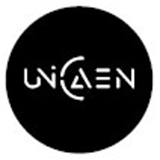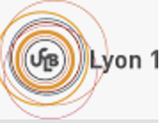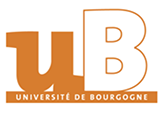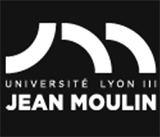Introduction
The University of Limoges is one of the largest comprehensive universities in central France. It is located in Limoges in south-central France and is a multidisciplinary public university.
Overview
Student size: more than 16,000 students, of which international students account for a certain proportion.
Number of teachers: nearly 1,000 scholars and researchers, including 1,200 academic staff and 538 administrative staff.
History
The University of Limoges was formed in 1968 by the merger of several higher education institutions in Limoges. Its history can be traced back to the medical school and pharmacy school in 1626. It even inherited the academic tradition of the Abbey of Saint Martial de Limoges, which was established in 848 in the Middle Ages and abolished by the French Revolution in 1891. The abbey was once an important knowledge center in medieval Europe.
Foundation time
Officially established in 1968, but the history of some of its disciplines can be traced back to 1626. Years.
School Strength
Teaching Quality: As one of the famous comprehensive universities in France, the University of Limoges offers bachelor's, master's and doctoral degree programs covering a wide range of disciplines, providing students with a rich variety of professional choices and high-quality teaching resources, and cultivating students with strong competitiveness in the job market and academic fields.
Scientific Research Level: The school has a number of research laboratories and institutions, such as xlim UMR CNRS 7252, ipam, ircer, geist, shs, gio, etc. These laboratories cooperate with institutions such as the French National Center for Scientific Research to carry out in-depth research in computer science, materials science, life sciences, humanities and social sciences, and have achieved a series of important results.
Institutional Nature
Public University.
Educational Philosophy
The University of Limoges is committed to providing comprehensive knowledge education, focusing on cultivating students' innovative and practical abilities, encouraging students to actively participate in scientific research projects and social practice, improving students' comprehensive quality and competitiveness, and emphasizing interdisciplinary education and research, cultivating students' comprehensive thinking and ability to solve complex problems.
Key Laboratories and Disciplines
Key Laboratories:
xlim UMR CNRS 7252: It is a multidisciplinary research institution formed by the merger of four laboratories, bringing together More than 500 professors, CNRS researchers and PhD students, mainly engaged in research in computer science, mathematics, optics, electromagnetism or electronics.
ipam: dedicated to the research of materials and process engineering, bringing together two laboratories of the University of Limoges and the National Institute of Industrial Ceramics of France.
ircer: French National Institute of Ceramics and Materials, mainly engaged in research in the field of ceramics and materials.
geist: mainly focuses on research in the fields of genomics, environment, immunity, health and therapeutics.
shs: focuses on research in the humanities and social sciences.
gio: governance of research institutions and organizations.
Key disciplines:
Medicine and Pharmacy: The medical school and the pharmacy school have a long history. The medical major has trained a large number of professional medical talents. The pharmacy major has a high level of teaching and research in drug research and development, production and management.
Humanities: The School of Humanities has a profound academic accumulation in the fields of literature, history, language, sociology and other disciplines, providing students with systematic humanities and social science education and research opportunities.
Science and Technology: The Academy of Technical Sciences is strong in science and engineering fields such as mathematics, physics, chemistry, computer science, and electronic engineering, providing students with advanced science and technology education and research platforms.
Faculty
The University of Limoges has 9 teaching and research units, including the School of Literature and Humanities, the School of Science and Technology, the School of Law and Economic Sciences, the School of Medicine, the University of Technology, the School of Pharmacy, the National Limoges Higher School of Engineers, the University Vocational College, the General Administrative Competition Preparation College, and 2 contracted cooperative colleges, namely the National Limoges Higher School of Industrial Ceramics and the National Limoges Higher School of Decorative Arts, as well as 2 doctoral graduate schools.
Ranking
2024 QS World University Rankings: Ranked 1201-1400.
2024 CWUR World University Rankings: 1428th in the world, 492nd in Europe, and 59th in France.
Expenses
Tuition fees: As a French public university, tuition fees are fully covered by the state. Students only need to pay a registration fee, which is generally around 170-300 euros for undergraduates and around 200-400 euros for masters and doctoral students.
Living expenses: Limoges is one of the cities with the lowest living costs for French students. According to statistics in 2023, the monthly living expenses are about 1027 euros.
Campus
Campus distribution: The university is located in the center of Limoges, and has branch campuses in Bilifu, Aigueton, Tours, Memac, Hehan, Sudihan, etc. The total campus area is 33 hectares, with a building area of 14.5 10,000 square meters.
Teaching facilities: The school is equipped with modern teaching buildings, libraries, laboratories and other teaching facilities, providing students with a good learning environment and scientific research conditions.
Living facilities: There are eight campus restaurants and 17 student dormitories around the campus, as well as various supermarkets, cafes and other living facilities to meet students' daily needs.
-

University of Angers
-

University of Caen Normandy
-

University of Bordeaux
-

Claude Bernard University Lyon 1
-

University of Burgundy
-

CY Cergy Paris University
-

Clermont Auvergne University
-

University of Artois
-

Jean Moulin University Lyon 3
-

University of Franche-Comté
-

Mesoamerican University
-

Istmo University
-

Mariano Galvez University of Guatemala
-

Regional University of Guatemala
-

Galileo University
-

Francisco Marroquín University
-

Rafael Landívar University
-

University of the Valley of Guatemala
-

University of San Carlos of Guatemala
-

Technological Institute of Tlaxcala Plateau
-

Golfo University
-

Technological University of South Sonora
-

Technological University of Huejotzingo
-

Tizimín Institute of Technology
-

Chilpancingo Institute of Technology

